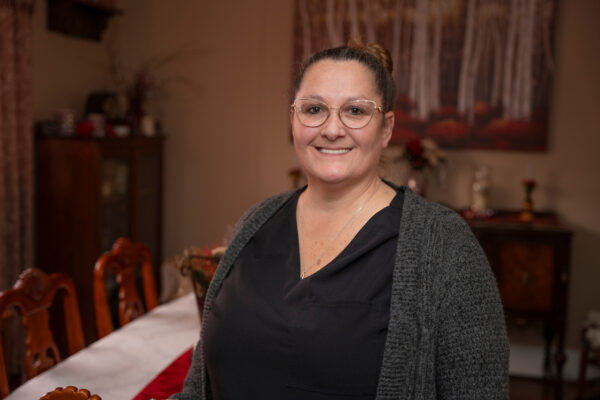Have you been looking for the right care plan for your elderly loved ones? If yes, then you must have heard about the different care plans: home care, home health care, nursing homes, assisted living, and many others.
Beyond the variety of care options, the cost of the plans as well as why and how they cost those prices is another decisive factor. For example, home health care cost depends on factors such as your location, the type of care needed, and the insurance coverage.
Seeing as the cost is very important, we will be breaking down two commonly discussed care plans by looking into the cost of home care vs nursing homes. Here, we will take a look at the costs of each care service and the factors to consider before deciding on which one to go with.
Cost Of Home Care vs Nursing Homes
For those only interested in the cost of home care vs nursing homes, the Genworth Cost of Care Survey of 2024 researched 383 cities and towns across all 50 states in the U.S. and concluded that the median cost of home care per day is around $207 while that of nursing homes is between $305 to $350.
At first glance, home care may seem like the best option for you, as it is the most affordable. However, your decision should not rest only on costs, and that’s why we have made this guide.
Firstly, here is a summary of the median cost of home care vs nursing homes:
| Home care | Nursing home(Semi-private room) | Nursing home(Private room) | |
| Hourly | $35 | N/A | N/A |
| Daily | $207 | $305 | $350 |
| Monthly (31 days) | $6,292 | $9,277 | $10,646 |
| Annually | $75,504 | $111,325 | $127,750 |
Now that we have the costs covered, let’s take a look at the different factors that make up these costs and that you also need to consider before you decide on which one you need for your loved ones.
Home Care vs Nursing Home – Service
What exactly do both care plans offer? The main difference in the services rendered is in the presence of medical assistance.
Home care offers assistance with Activities of Daily Living (ADLs) which include bathing, dressing, grooming, and eating, and also with Instrumental Activities of Daily Living (IADLs) such as meal preparation, housekeeping, and running of errands. They also act as a kind of companion for the seniors.
If mild medical assistance and monitoring are needed at home, then what you need is medical home care—rather than standard home care—is necessary.
Nursing homes offer both ADL and IADL assistance but with a stronger focus on medical supervision and skilled nursing care that surpasses that of home care or assisted living. They are needed by seniors with chronic illnesses or disabilities requiring constant medical attention.
Home Care vs Nursing Home – Availability
Sometimes, the most important question is how much will the care be available to the senior. Home care offers flexible scheduling, allowing families to pay for only the hours of care needed. If you require assistance just a few times a day, maybe during working hours, there is an hourly plan you can pay. Home care can also go the full length and be available 24/7, however, that takes a large toll on the bill.
Nursing homes offer round-the-clock services. The senior is always monitored, attended to, and given every level of care needed. This all-round availability and resources is one of the reasons behind the relatively higher cost.
Home Care vs Nursing Home – Payment Options
The financial implications of home care and nursing homes vary significantly.
Home care, in most cases, is paid out of pocket. Seeing as it includes quite a number of homemaking services it typically isn’t insured. You would have to cover most or all of the payments using personal savings or pension income.
While home care is primarily an out-of-pocket expense, some financial assistance options exist, including:
- Early-planned long-term care insurance
- Special private insurance coverage through employee assistance programs
- VA benefits for veterans and their spouses
Nursing home care is often covered by Medicaid for eligible individuals who meet specific income and asset criteria. Medicare may also cover short-term stays after hospitalization, but not long-term residency. VA benefits can also assist eligible veterans and their spouses with nursing home expenses.
Home Care vs Nursing Home – Tax Considerations
Both home care and nursing homes may qualify for tax benefits, but eligibility depends on the nature of care, medical necessity, and who is paying for the services.
For home care, there are fewer considerations but home care expenses may still be tax-deductible in some cases. Here are a few:
- Dependent Care Credit: If home care is provided to an aging parent who qualifies as a dependent, families may claim a tax credit for a portion of the care costs.
- Health Savings Accounts (HSAs) & Flexible Spending Accounts (FSAs): Funds from HSAs and FSAs can be used tax-free for qualified home care expenses.
There are more tax-deductible options for nursing homes because of the medical involvement, such as:
- Full Deductibility for Medical Necessity: If a doctor certifies that nursing home care is medically necessary, 100% of the costs (including meals and lodging) may be tax-deductible.
- Partial Deductibility for Custodial Care: If a nursing home resident does not require medical care but is in a facility primarily for custodial support, only the medical portion of the cost is deductible.
- Long-Term Care Insurance Premiums: Taxpayers may deduct a portion of qualified long-term care insurance premiums, depending on age and policy type.
Note that for the medical deductibility, the expenses must exceed 7.5% of the taxpayer’s adjusted gross income (AGI), this is in line with the IRS Publication 502.
In addition, If a family member is paid as a caregiver, their income may be taxable, but some states offer tax exemptions for informal caregivers.
Home Care vs Nursing Home – Location
Home care, as the name implies is carried out in the senior’s homes while nursing homes refer to a separate facility where the care plan will be executed.
Location plays a crucial role in seniors’ care decisions, with many preferring to remain at home rather than in any other facility.
However, seniors who require medical services cannot pick home care over nursing homes because of the difference in the service rendered. A solution to this dilemma is in-home nursing, which bridges the gap between home care and nursing homes.
In-home Nursing—The Perfect Blend?

One thing that you can do if you require medical assistance from a nurse frequently but don’t want to leave the comfort of your home can be to get in-home nursing. This is a specialized care that involves access to a personal nurse who provides care in the patient’s home as needed. However, for conditions requiring constant, advanced medical care, a nursing home may be the better option.
Firefly Home Health LLC is a licensed home healthcare agency that provides top-notch In-home nursing services, linking a middle ground between traditional home care and full-time nursing home residency with both medical expertise and personal independence. We have provided personal nurses to several residents within Indiana and Michigan.
In-home nursing works well if the medical attention you need involves:
- Medication management and administration
- Wound care and post-surgical monitoring
- Chronic disease management (e.g., diabetes, heart conditions)
- IV therapy and injections
- Palliative and hospice care
In-home nursing is more affordable than full-time nursing home care but can be more expensive than basic home care since it includes medical services.
Firefly Home Care: For All Your Geriatric Care
At Firefly Home Care, we pride ourselves in diligent geriatric care management. We have partnered with First Call Care Management to provide homes with geriatric care managers who provide expert guidance, planning, and coordination of care for seniors.
The best part about our services is that they are all optimized for care within the home and they are tailored to each person’s needs. We bring the services to your living room and coordinate all the affairs.
Contact us today, to take our survey and discover what fits you and your family!






























